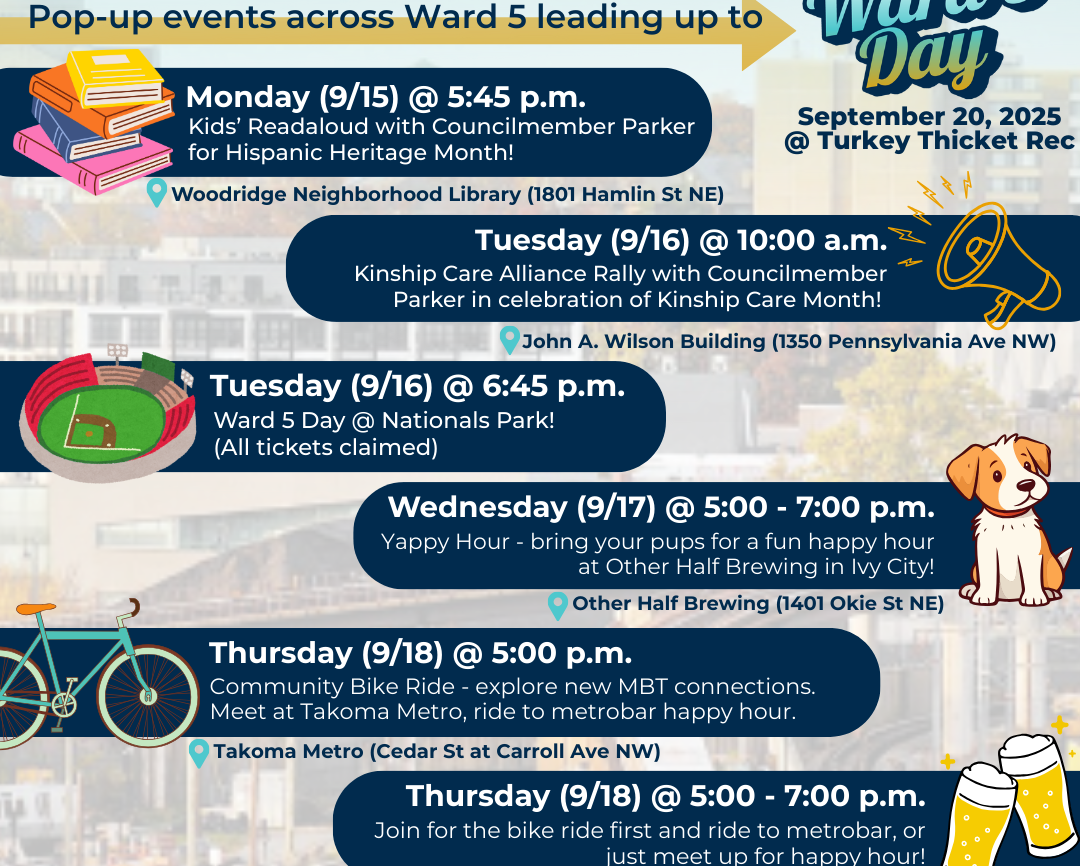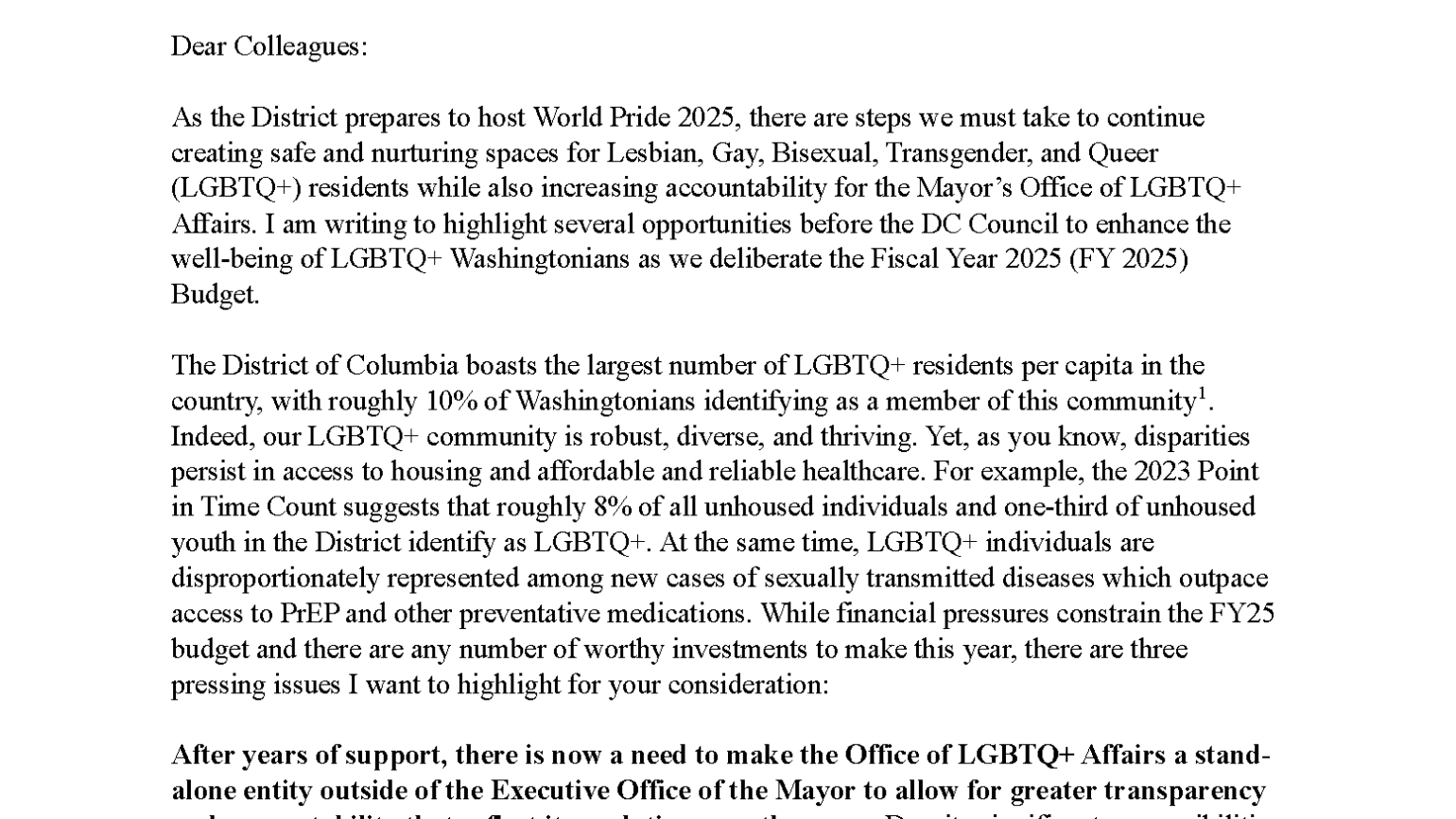This week, Mayor Bowser released her proposed FY26 budget, officially kicking off budget season in DC. The $21 billion proposal, introduced amid a $1 billion projected shortfall over the next three years, makes clear how the Mayor envisions moving the District forward: corporate incentives and headline-grabbing development projects over education and basic human needs.
This is often dubbed “trickle-down economics” — the idea that if we only reduce burdens (and often taxes) on businesses and the wealthy, then they will create jobs, lure more business, and expand profits for everyone, including the most vulnerable amongst us. Ronald Reagan coined the phrase: a rising tide lifts all boats. I reject trickle-down economics as it has never worked, and it only exacerbates pain for our seniors, low-income residents, and our youth, while making a small minority wealthy.
I believe we can grow our local economy, support businesses, and double down on investments for ordinary Washingtonians. Last week, I shared a broad framework about how we can build a budget for all of us. It anchors on growing our local economy by investing in you, our people. It calls on those with more to do and give more, ensuring we can weather the temporary storms.
It’s important here to make a distinction between the FY26 proposal, and the FY25 supplemental budget—where the Mayor was able to avoid furloughs and cuts, effectively closing the billion dollar gap for this year forced on us by Congress. This is a win for the District and I applaud the Mayor and her team for their work on this front. This success with the supplemental budget is distinct and separate from what we face with the FY26 proposal and the anticipated billion dollar drop in revenue over the coming years.
To make clear the harm embedded in the Mayor’s FY26 budget, consider that the proposal slashes support systems that tens of thousands of Washingtonians rely on:
- Changes to Medicaid could push 25,000 residents off health insurance—disproportionately harming people of color and those with disabilities.
- Healthcare Alliance cuts will eliminate coverage for nearly 30,000 low-income immigrants.
- TANF benefits are being frozen or reduced, directly targeting the poorest families with children.
- The Pay Equity Fund—our tool to pay early childhood educators a fair wage—is eliminated in FY27.
- There is a reduction of about 4% in the UPSFF in FY27. This is how we fund our schools.
- The Child Tax Credit and Baby Bonds Program—two mechanisms to invest directly in our youth and families—have been eliminated.
- There are reduced investments in the Childcare Subsidy Program for low-income residents and our Child and Family Services Agency (CFSA), leaving our most vulnerable youth with fewer supports at a time when they need more.
Instead of asking the wealthiest residents (those making millions of dollars) and corporations to pay their fair share, Mayor Bowser’s proposed FY26 budget sacrifices public health, family support, education, and immigrant protections. In effect, we would be rolling back years of deepened investments made over the pandemic that led to historic progress for our schools, workers, and families.
In fact, the budget delays a sales tax increase and reduces business taxes—sacrificing revenue at a time of fiscal crisis. Keep in mind that the wealthiest Washingtonians in effect pay a lower tax rate than middle-income Washingtonians, at a time when our wealthiest residents stand to receive substantial tax breaks at the federal government level. These tax breaks are supposed to “stimulate growth,” yet there’s no clear data showing they would generate enough return to justify the cuts to social programs.
What’s more, in a particularly regressive move, Mayor Bowser proposes to repeal DC’s sanctuary city protections. This is a sharp ideological pivot that I fear feeds into fearmongering and harm perpetuated by the federal government. It plays directly into right-wing narratives about immigration enforcement.
And what about climate commitments? The budget sidelines green energy investments, almost entirely eliminates the Green Bank—our vehicle for sustainable development—and environmental enforcement, reversing course on the District’s climate progress and runs antithetical to our own climate goals.
Yes, this budget will require us to make tough choices. But why is the pain felt solely among the District’s most vulnerable residents in Mayor Bowser’s FY26 budget? Shouldn’t we all be asked to give a little? We deserve better than an austerity budget disguised as a growth agenda. We deserve a budget for all of us.




